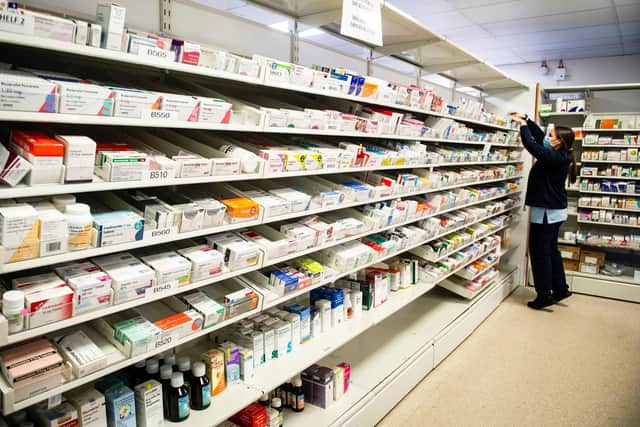Warning of ADHD drugs shortage in Nottinghamshire as thousands of patients prescribed treatment
and live on Freeview channel 276
Attention Deficit Hyperactivity Disorder (ADHD) is a condition which impacts many people across the UK.
Adults and children with the condition may have difficulty concentrating, act impulsively and appear restless.
Advertisement
Hide AdAdvertisement
Hide AdIn September, the NHS issued a national patient safety alert about a shortage of certain drugs used to treat the condition.


These include some formats of the most prescribed drug for ADHD – methylphenidate hydrochloride – alongside all lisdexamfetamine and guanfacine medication.
The NHS has previous said there is also a shortage of some types of atomoxetine.
Now, new figures from the NHS' open prescribing service show more than 4,000 patients were prescribed one of these drugs in some form in Nottinghamshire in the three months to June.
Advertisement
Hide AdAdvertisement
Hide AdHenry Shelford, chief executive of the ADHD UK charity, said medication is ‘life-changing’ for those with the condition – and taking it away can have disastrous consequences for those individuals.
He said: "The NHS should have realised that this was happening and had a plan in place.
"Instead, people are only finding out when their pharmacy can't supply.
"They've been left stranded with no support.
"Medication is carefully given with dosage and type worked out over months.
"The idea it can be chopped and changed is wrong.
Advertisement
Hide AdAdvertisement
Hide Ad"This is devastating for individuals across the country and will be life-changing for some.
"People with ADHD are being let down by the NHS – this is just the latest way in which we are being failed.”
Across all forms of ADHD medication, 4,852 patients were given a prescription in Nottinghamshire in the three months to June.
This was a rise from 4,128 patients during the same period last year, and a jump of 65 from 2,934 in the spring of 2020.
Advertisement
Hide AdAdvertisement
Hide AdThese figures cover how many patients with an NHS number picked up a prescription during that time frame – accounting for 85 per cent of prescriptions received in the area.
In 2020, this covered 80 per cent of prescriptions.
The ADHD Foundation said just over 200,000 (10 per cent) of an estimated two million UK citizens with the condition are receiving medication.
Tony Lloyd, chief executive of the charity, said ADHD has been ‘significantly underdiagnosed, particularly among women’.
He attributes the increase in prescribing to ‘rebalancing’ this underdiagnosis.
Advertisement
Hide AdAdvertisement
Hide AdHe added: “Medication, however, should not be used in isolation and should form part of a range of strategies and lifestyle choices to manage ADHD successfully."
The shortages are expected to be resolved between October and December.
A spokesperson for the Department of Health and Social Care said: "We are aware of supply issues affecting medicines used for the management of ADHD due to increased global demand, and we have issued communications to the NHS to advise healthcare professionals on management of patients during this time.
"We continue to work closely with the respective manufacturers to resolve the issues as soon as possible and to ensure patients have continuous access to ADHD medicines in the UK."